Let's begin with China where Beijing is stepping up stimulus as the central bank cuts the banking reserve requirement (RRR) by 100 basis points. This was the largest single reduction since 2008. 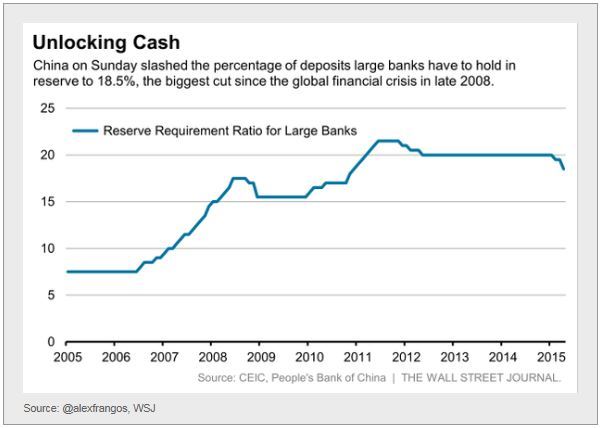
At the same time short-term rates continue to fall. Here is the 7-day repo as well as the overnight and the 1-week SHIBOR (interbank rate). 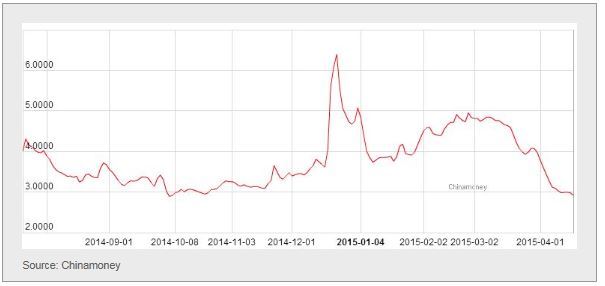
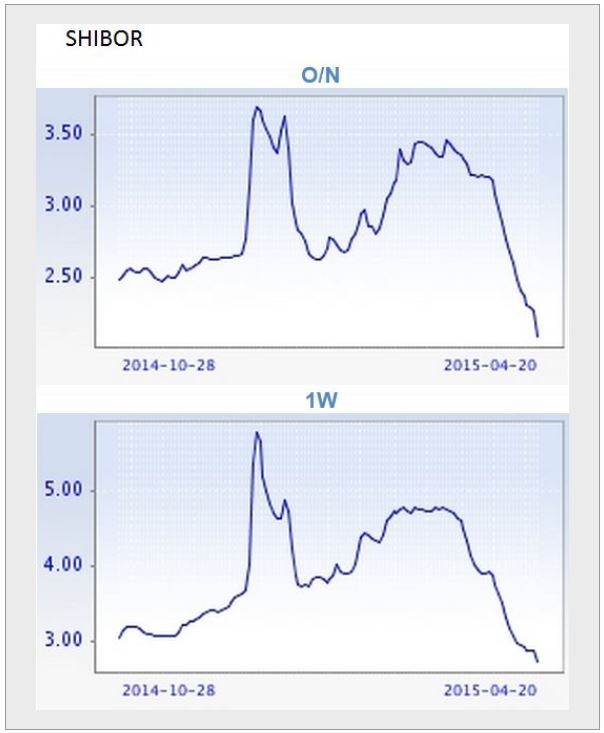
In the past, capital would flow into the country from exports and foreign investment. The PBoC would purchase dollars coming in by "printing" the yuan - thus keeping the exchange rate pegged to the dollar.
That created a great deal of yuan liquidity, which the PBoC would periodically sweep out by adjusting the RRR or forcing banks to buy government bonds. Now the nation has been experiencing outflows which resulted in reductions of yuan in the system. This brought about higher rates and tighter effective policy.
Recently Beijing became concerned with low inflation and high real interest rates. The the central bank started managing the process more effectively, injecting liquidity into the system and lowering rates - and today cutting RRR. At this point the PBoC is clearly focused on creating looser monetary conditions.
Speaking of stimulus, the Shanghai Composite continues to rise... 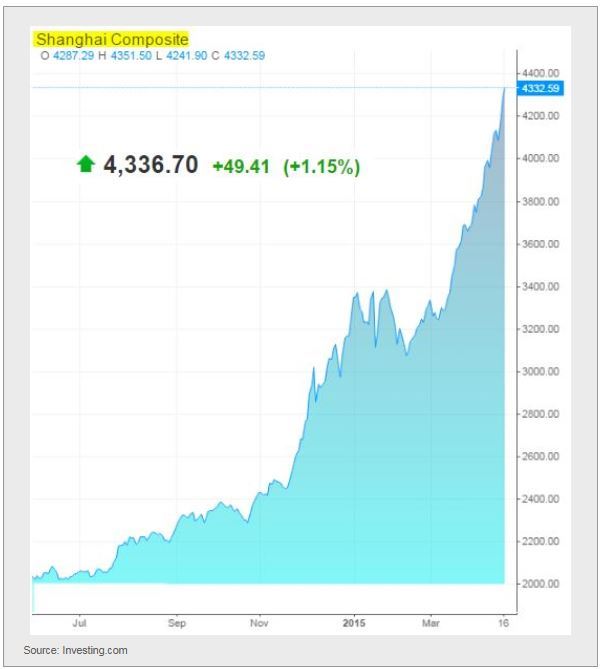
While most analysts don't believe this is yet a "bubble", the statistics on margin buying (using borrowed money to purchase shares) seem to indicate there may be a problem:
1. Margin balance: 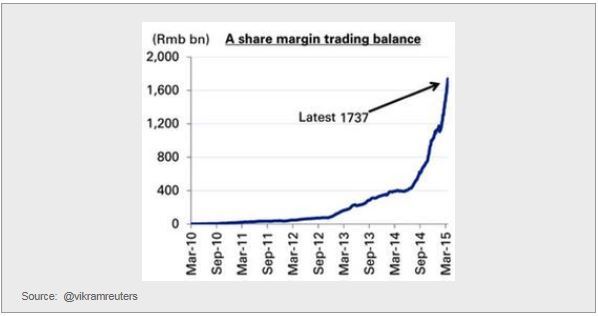
2. Margin as % of trading volume: 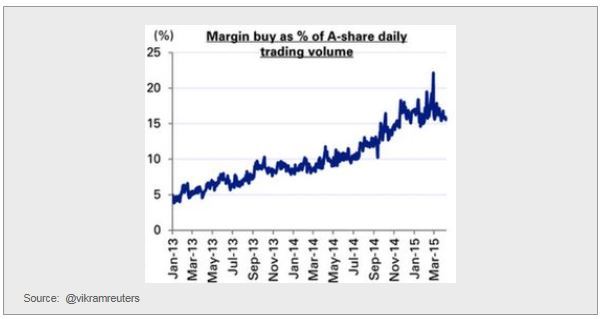
3. Margin as % of free float market capitalisation relative to other major Asian markets: 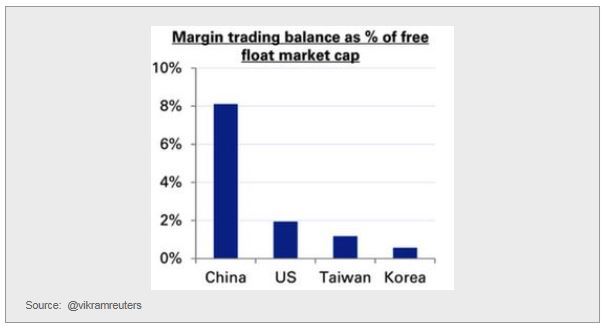
Property markets in China continue to fall. Below is the year-over-year change in China's housing prices. Is the contraction cycle about to bottom? 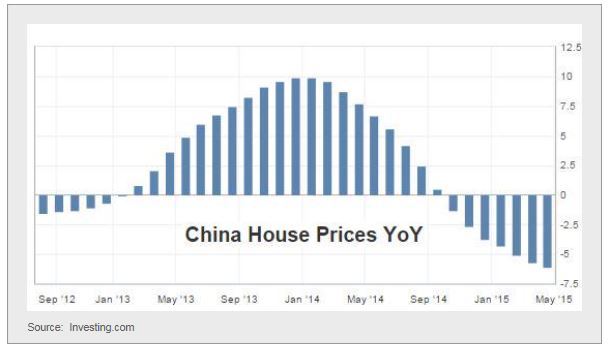
Disinflationary pressures across Asia/Pacific remain (China's RRR cut was quite timely).
1. New Zealand CPI came in below expectations. Based on the momentum I wouldn't be surprised to see the next print below zero. 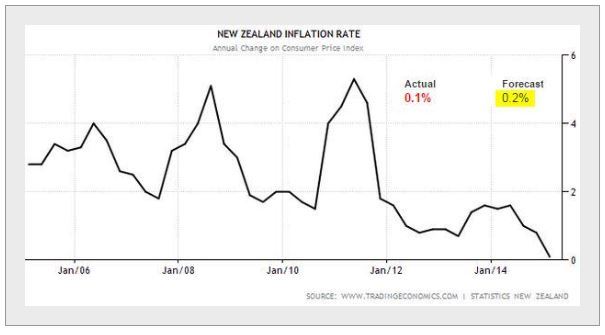
2. South Korea PPI was materially below expectations. 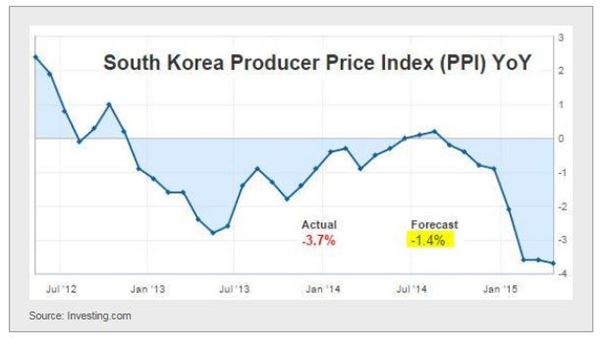
Switching to the Eurozone, the Bundesbank's TARGET2 assets (claims on other euro area central banks) have been rising. Most of that is due to Greek depositors pulling money out of the banking system.
Greek banks in turn are forced to borrow from the Bank of Greece as they lose deposit-based funding. Bank of Greece then borrows from the Eurosystem, with Bundesbank being the largest "creditor". 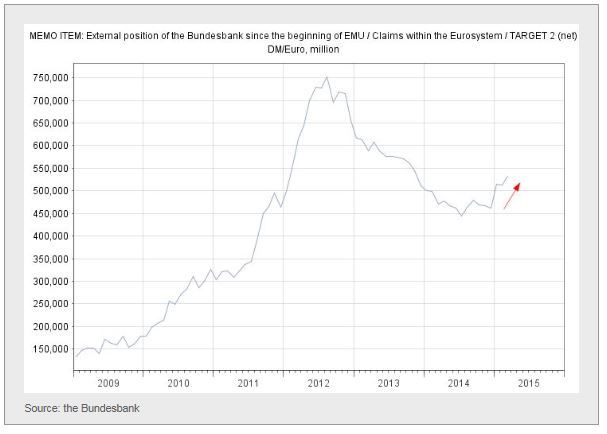
Note that in a Grexit scenario, as the Bank of Greece is expelled from the Eurosystem, it will default on its TARGET2 obligations. That in turn will force Bundesbank (and other core euro area central banks) to take a write-down.
Of course a nation such as Germany should easily absorb such a loss and recapitalise its central bank. But at that point the Germans will surely want to know just how much more of such exposure their central bank holds. 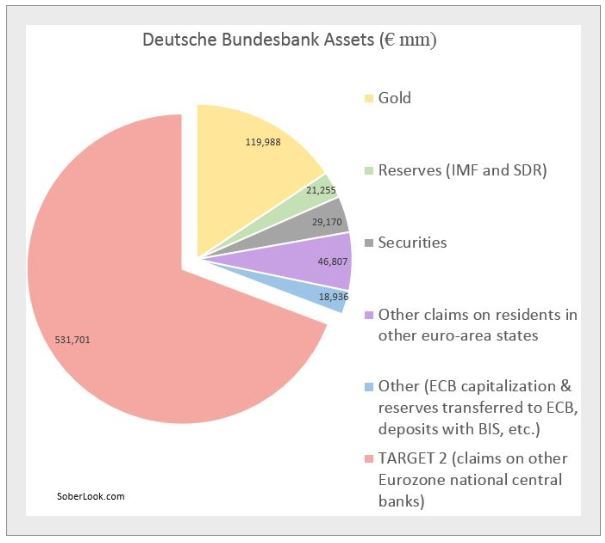
The answer at this point is that nearly 70% of Bundesbank's assets are in TARGET2 claims - a half a trillion euro exposure to periphery nations' central banks. How much support for the EMU will the Germans have once they realise that a large portion of their central bank's assets could be at risk?
After Grexit, the TARGET2 exposure will no longer be some abstract concept - the risk levels will become quite real and German politicians and the media will surely drive that point home.
Moreover, as Greece imposes currency controls, depositors in other periphery nations are likely to also begin shifting capital out of their domestic banking system - as they see the writing on the wall. Portugal, Spain, and Italy are particularly vulnerable.
Such actions will of course end up increasing TARGET2 imbalances further (as was the case in 2012), putting more of Bundesbank's balance sheet at risk.
Certainly Grexit-related damage can be managed by the national central banks and the European Stability Mechanism. These institutions will be promptly recapitalised. Such actions however will anger citizens of some member states, whose taxpayers' funds will used to fix the damage caused by Greece.
Given the chaos and the political backlash such an outcome will generate, it's unclear when - if at all - confidence in the currency union will be restored. As discussed before, history is not on the Eurozone's side.
The search for yield in the Eurozone has created massive demand for longer-dated corporate bonds - as companies lock up these low rates for longer periods. This is clearly a positive for corporate profits. 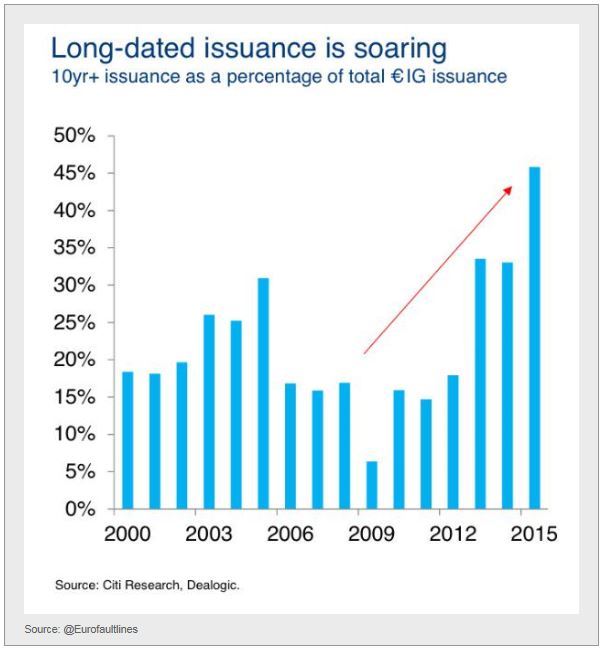
The same trend has pushed high yield issuance to record levels. Note that the 2015 number is year-to-date only! 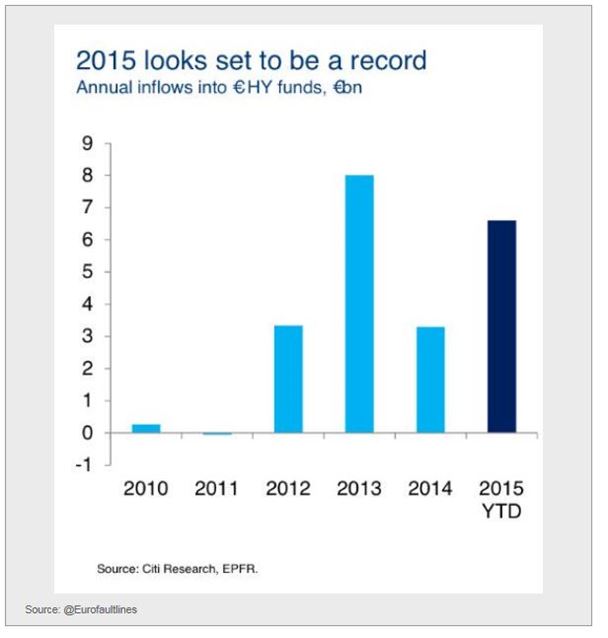
Scotiabank points out that Canada's short-term rates remain elevated relative to a number of other developed economies. The Bank of Canada has been on hold, as the country's inflation rate rose due to weaker currency. Barring action from the BoC, this rate differential will result in upward pressure on the Canadian dollar. 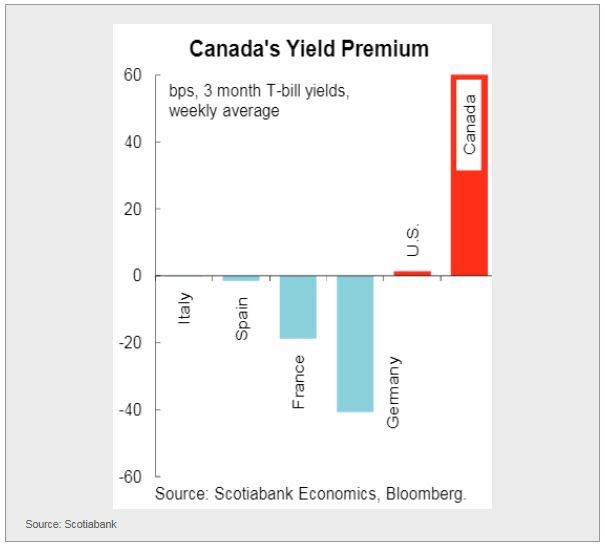
And that's what we've been seeing in the market. Here is Canadian dollar (blue) and Mexican Peso (black) vs. USD over the past month. 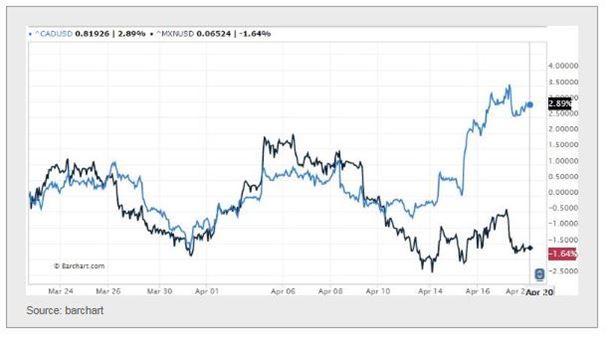
Disclosure: Originally published at Saxo Bank TradingFloor.com
